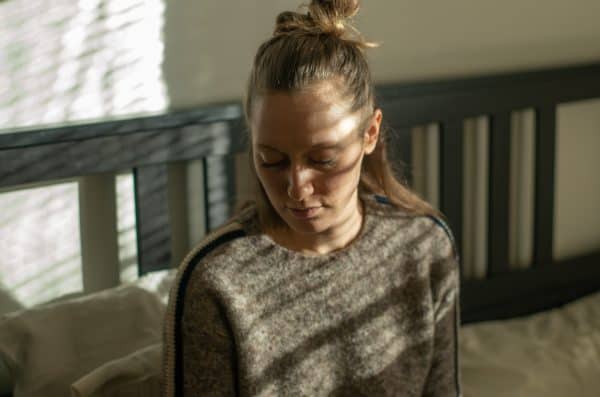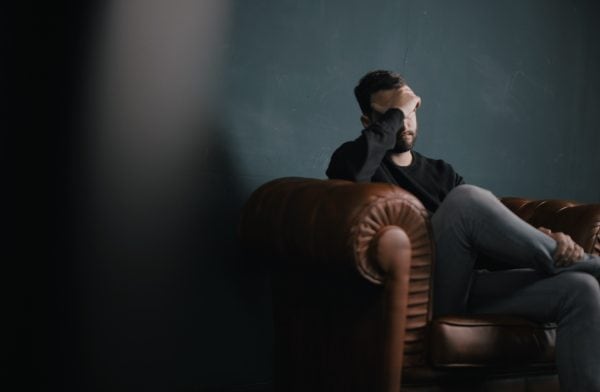Most of us are anxious every now and then. A level of anxiety when we face certain situations is a normal part of life and helps us grow up safely learning to be aware of dangers and perceived risks. However, for some people they experience crippling anxiety every day, which can last for weeks or months. This kind of disorder can overwhelm a person’s everyday life. But, once we can find out the underlying root cause of the anxiety disorder and discover what the most common anxiety triggers are, we can start to recognise the feelings of anxiety causes, change our thought patterns, and treat it appropriately.
Anxiety should only be diagnosed by a medical health professional. But if you suspect that you or someone you know has anxiety, or even if you’re just feeling a little anxious at the moment and aren’t sure what to do, check out our list of signs and symptoms.

 Emanuele has a compassionate approach to clients’ struggles, in order to promote awareness and initiate together the transformative process. His treatment approaches range from Gestalt, Emotionally Focused Therapy, Dialectical and Cognitive Behaviour Therapy, EMDR, ACT, Neuropsychotherapy, Sensorymotor Psychotherapy and Cape Cod Model for Couple Therapy.
Emanuele has a compassionate approach to clients’ struggles, in order to promote awareness and initiate together the transformative process. His treatment approaches range from Gestalt, Emotionally Focused Therapy, Dialectical and Cognitive Behaviour Therapy, EMDR, ACT, Neuropsychotherapy, Sensorymotor Psychotherapy and Cape Cod Model for Couple Therapy.
To learn more about anxiety and how to start implementing treatment, download our guide here –
What are the Causes of Anxiety?
There are several causes for anxiety that may be at play at any one time. Sometimes multiple factors may be present or be working as anxiety triggers at certain times in our lives.Environmental Factors
Environmental factors can be a significant cause of anxiety. Things like stress from work, school, or the home, significant life events like moving house, ending a relationship or financial stress may all play a part in causing anxiety. Anxiety may also stem from past trauma related to an incident. PTSD from pregnancy or the arrival of a new child is also common. Sometimes we can’t understand the cause of anxiety in our lives because we underestimate how much of an impact certain situations or events have. It may be difficult to realise what is causing your anxiety or to make connections without an outsider’s perspective, which is why having a support system is so important. In these scenarios, it may be helpful to keep a diary so that you can try to make connections between your feelings and events.Medical Factors
There are also several medical factors which may be cause for anxiety, such as:- medications
- symptoms of a disease
Illicit Substances
The ongoing use of or withdrawal from illicit substances can often be a major cause of anxiety. This can often exacerbate an existing anxiety condition drastically, especially when combined with some of the other anxiety triggers listed above.
What are the Causes of Anxiety Attacks?
Similarly, anxiety attacks are caused by the same factors like anxiety. They can often be linked to environmental anxiety triggers or ongoing stress or trauma. Ongoing anxiety attacks (or panic attacks) are usually an indicator that the person has an anxiety disorder, and should not be ignored.Diagnosis of Anxiety
If you feel that you or someone you know has anxiety, proper diagnosis should be sought. This should be completed by a medical professional. The important thing to understand is that you’re not alone. Anxiety is one of the most common mental health issues in Australia, according to Beyond Blue, and, on average, one in four people will experience it at some point in their lives. Check our signs and symptoms of anxiety blog to learn more about what anxiety looks and feels like. To find out about treatment, read about treatments for anxiety blog.To learn more about anxiety and how to start implementing treatment, download our guide here –
or contact us today for more information.
Emanuele Latino Program Director & Psychologist Emanuele has a compassionate approach to clients’ struggles, in order to promote awareness and initiate together the transformative process. His treatment approaches range from Gestalt, Emotionally Focused Therapy, Dialectical and Cognitive Behaviour Therapy, EMDR, ACT, Neuropsychotherapy, Sensorymotor Psychotherapy and Cape Cod Model for Couple Therapy.
Emanuele has a compassionate approach to clients’ struggles, in order to promote awareness and initiate together the transformative process. His treatment approaches range from Gestalt, Emotionally Focused Therapy, Dialectical and Cognitive Behaviour Therapy, EMDR, ACT, Neuropsychotherapy, Sensorymotor Psychotherapy and Cape Cod Model for Couple Therapy. 


